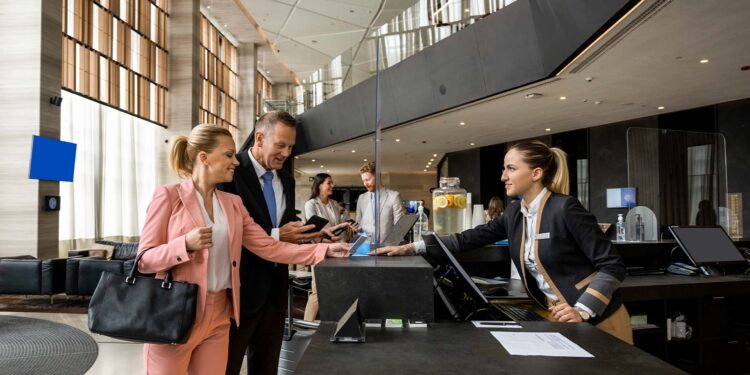Hotel Security for Business Aviation Travel – Part 3: Security Briefs

This business aviation blog post continues from our article last week, titled “Hotel Security for Business Aviation Travel – Part 2: Room Considerations & Tips.”
In most cases you won’t find much information on specific hotel security/safety issues online – unless the hotel has had a publicized attack or security incident. Travel sites will have guest reviews, but these are mostly focused on amenities rather than safety/security specifics. In most cases, you’ll need to use a private security company to provide relevant actionable safety/security information on particular hotels and local areas.
The following is an overview of what you need to know:
1. Hotel security briefs
A good hotel security brief will cover infrastructure of the property – construction material, number of floors, layout, access controls between public and guest room areas, languages spoken, local culture considerations and roadway conditions to/from the airport. These briefs provide detail on hotel security features – including presence of guards, security cameras, entrance protection and screening, and response time of local police. Prior to travel communicate with your internal corporate security department regarding security considerations for the location and hotel you’ll be visiting. Otherwise, consider ordering specific local area and hotel security briefs from a trusted independent security provider. At minimum, communicate with your 3rd-party provider and ground handler regarding potential security/safety issues based on where and when you’ll be staying at a location.
2. Advance security checks/briefs
It’s recommended that operators arrange for hotel security briefs – even for domestic travel – to maximize awareness of known risk potential. Particularly when planning a trip to a new foreign destination, take the extra step to contact a security company for local area and hotel security briefs. These security threat assessments, covering a specific hotel, are worthwhile and relatively inexpensive. Always evaluate ground transport options between the airport and the hotel as well as Plan B alternate routings. In most cases, it’s best to use prepaid (car with driver) transport or, alternatively, transport vetted by the hotel or ground handler.
3. Additional hotel room security tips
To increase personal security, keep a “do not disturb” sign on your door, with TV/radio and/or lights on, to indicate that the room is “occupied.” If you need the room cleaned call the concierge and have it done while you’re there. Do not answer the door if someone knocks, unless you’re expecting someone. Test the smoke detector in your room to ensure its working. If it does not work request another room.
4. Express kidnappings
In many countries we’re finding that, outside from routine street crime, express kidnapping are taking place. In particular, there may be people standing around outside a hotel, perhaps close to ATM machines, with the intention of taking you and holding you for a couple of days so that your bank balances can be harvested via ATM withdrawals. It’s always best to ensure that your hotel has an ATM machine on the property and that it’s working.
5. Additional Reading: Hotel Security Tips – Series Index
Note: Links will be updated as articles are published.
Conclusion
Many crews overlook the important step of doing security reviews of particular hotels and local areas. It’s important to be aware of specific hotel and area threats that may be present due to current local events as well as general day to day security/safety considerations at particular hotel options.
Questions?
If you have any questions about this article or would like assistance obtaining a hotel security brief, contact me at traciecarwile@univ-wea.com.




